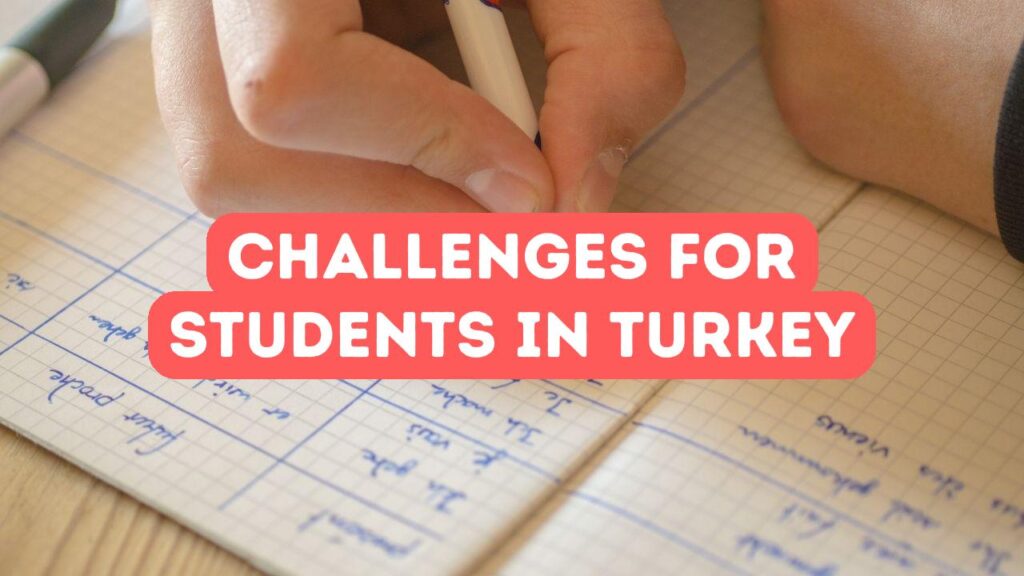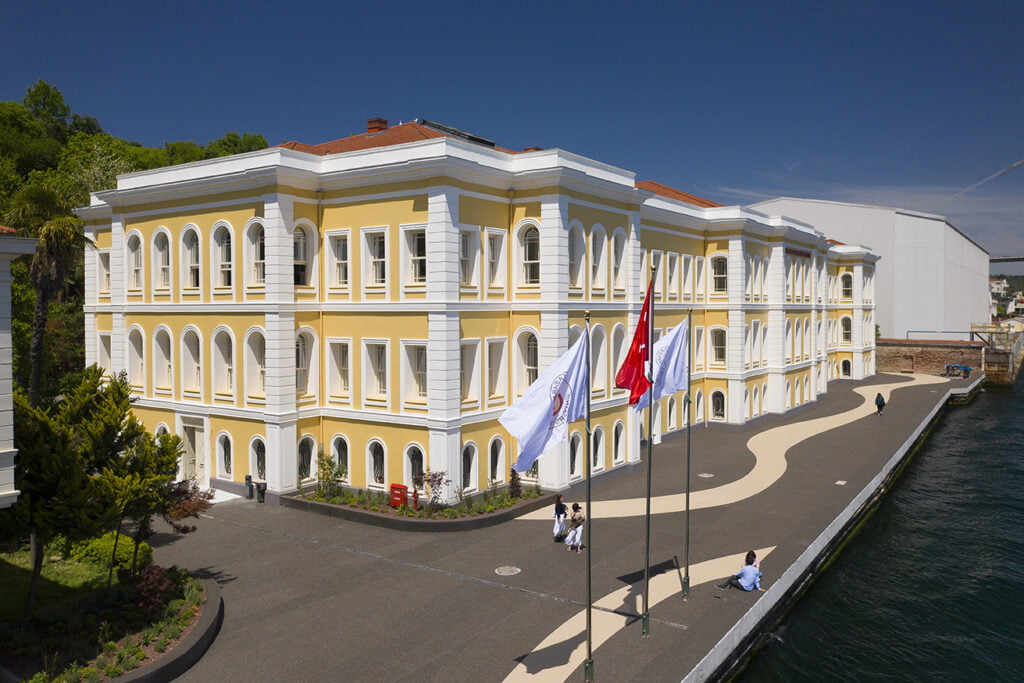International students Turkey challenges are a reality for many who choose to study abroad Turkey. Each journey is unique, filled with both promise and perplexity. Navigating cultural differences Turkey can sometimes feel like untangling a complex knot, challenging student life in Turkey. From deciphering new languages to adjusting to different educational systems, these hurdles require perseverance and resourcefulness. Many students find solace and success through adaptation tips for international students, which provide practical guidance for easing into this new chapter. It’s crucial to remember that while challenges may seem daunting, they’re also opportunities. They invite growth and understanding, sculpting unforgettable experiences and lifelong friendships. Embracing these Turkey educational experiences not only prepares students academically but also personally, arming them with lessons beyond textbooks. These trials, though formidable, form the backbone of a transformative, enriching journey, creating resilient global citizens ready to face their futures with confidence.
Navigating Cultural Differences: A Journey for International Students in Turkey
Cultural differences Turkey introduces to international students can be both intriguing and intimidating. Imagine stepping into a bustling bazaar, where every stall is a microcosm of Turkey’s rich heritage. It’s here, amidst the vibrant tapestry of sounds and smells, that international students Turkey challenges really come to life. One day you’re trying to order a simit, the next you’re navigating complex social cues in the lecture halls of Anatolia. The art of fitting in requires more than just learning a new language; it’s about understanding subtle gestures and nuances. But fear not; adaptation tips for international students are like trusty compasses. They guide you through these moments, turning potential blunders into cherished stories. It’s in these interactions, in the heart of student life in Turkey, that aliens become allies, and strangers become friends. The path may be rocky, but each encounter fuels a more profound growth, preparing students for life’s global stage.
Stepping into student life in Turkey presents a spectrum of cultural differences Turkey embodies. The adjustment period can be likened to piecing together a grand puzzle. While attempting to study abroad Turkey, students often grapple with day-to-day norms. Picture sipping tea in a traditional Turkish café—beneath its quaint charm lies a unique custom of hospitality and conversation. These moments teach international students Turkey challenges involve more than academics; they demand cultural sensitivity, respect, and open-mindedness. Understanding these intricacies is akin to adding vibrant brush strokes to a vast canvas of experience. Adaptation tips for international students are key, offering a roadmap to build bridges over cultural gaps. Celebrate these insights as stepping stones, forging deeper connections and understanding. This journey not only broadens academic horizons but enriches personal growth. With each cultural exchange, students gain a treasure trove of stories, redefining challenges into stepping stones toward a globally enriched education.
In the labyrinth of cultural differences Turkey introduces, international students uncover a journey similar to exploring hidden alleyways lined with mystery and marvel. Adjusting isn’t just about blending in; it demands an awareness as keen as a hawk’s eye. One must sense the unspoken traditions and the quiet rhythms of daily student life in Turkey. The challenge feels akin to learning a new dance where each shuffle and sway represents centuries of history and warmth. Through trial and endeavor, adaptation tips for international students become vital lifelines, anchoring them amidst shifting tides. As they study abroad Turkey, these young adventurers transform initial apprehension into partnerships forged across continents. Here, every handshake and shared meal weaves a tapestry rich with texture and tradition. By embracing these international students Turkey challenges, the journey becomes one of shared experiences, where the world feels just a bit closer, wrapped in a shawl of newfound understanding.
Academic Hurdles: Overcoming Language Barriers and Educational Expectations
Language barriers are among the most common international students Turkey challenges. Imagine trying to study abroad Turkey and suddenly finding yourself in a sea of unfamiliar words and phrases. It can be overwhelming. But here’s where adaptation tips for international students come in handy. Many students start with language courses or immersion techniques, which help bridge this linguistic gap. Cultural differences Turkey also influence teaching styles, with a notable emphasis on rote learning in some cases. This can be a stark contrast to what they’re used to, adding another layer to their academic hurdles. Student life in Turkey requires adaptability and grit, as students juggle these educational expectations while managing everyday tasks. Yet, with persistence, they find ways to meet these challenges head-on, unlocking not just new academic insights but also enriching their personal growth along the way.
For international students, Turkey challenges extend deeply into academic life, where language barriers intertwine with distinct educational expectations. Picture stepping into a classroom where every lecture feels like decoding a foreign signal. Such experiences magnify the importance of adaptation tips for international students, offering a lifeline of practical strategies to stay afloat. The study abroad Turkey journey becomes a test of patience and resilience, pressing students to find equilibrium between understanding lectures and embracing cultural differences Turkey. The emphasis on rote learning may seem rigid next to varied educational styles they’re accustomed to. This necessitates a shift in mindset, urging them to stretch their adaptability muscles. Yet, therein lies an opportunity. By pushing through these academic hurdles, students don’t just survive; they thrive. They sharpen skills, shaping their own unique student life in Turkey, where resilience and insight carve paths to unprecedented personal and professional horizons.
Social integration is another essential piece of the puzzle for international students facing Turkey challenges. Imagine moving from vibrant campus life back home to a setting where making friends feels like learning a dance with new steps. Many find cultural differences Turkey adds a layer of complexity to forming connections and building networks. This is where adaptation tips for international students prove invaluable, offering insights on participating in local activities and student clubs. Embracing student life in Turkey requires understanding subtle social nuances, fostering an environment where meaningful relationships can bloom. Moreover, the blend of cultures enhances personal growth, enriching the study abroad Turkey experience. By engaging actively with the community, students gradually ease into their new environment, weaving friendships that often become lifelong. They learn to celebrate diversity, turning initial hesitation into an exciting journey filled with shared moments, laughter, and a deeper cultural understanding.
Building a Support Network: Essential Resources and Communities for International Students in Turkey
In the quest to overcome international students Turkey challenges, building a support network can be a lifeline. For those who study abroad Turkey, finding a community is as crucial as acing exams. Connecting with others facing similar cultural differences Turkey provides a sense of belonging in unfamiliar surroundings. Universities often offer clubs and organizations designed to facilitate these connections, enhancing student life in Turkey. Online forums and social media groups serve as additional avenues, offering adaptation tips for international students to navigate new experiences. Engaging with local mentors and participating in cultural exchange programs can further enrich this journey. These resources collectively form a safety net, fostering a supportive environment that eases transition and cultivates enduring ties. In essence, by integrating into diverse networks, international students not only gain valuable insights but also find camaraderie that turns Turkey into a home away from home.
Navigating the international students Turkey challenges requires leaning into the wealth of resources and communities available. Universities frequently assist those who study abroad Turkey, providing vital programs that bridge cultural differences Turkey and encourage smoother integration. Newcomers can benefit from language workshops and academic counseling tailored to unique needs. Cultural clubs are often a treasure trove, increasing understanding and enjoyment of student life in Turkey. Professional networks can inform and inspire, helping students devise strategies for future success. Additionally, buddy systems pair international students with locals, offering real-world adaptation tips for international students adjusting to life abroad. Finding one’s place and forging connections doesn’t have to be daunting; with these essentials, the path becomes clearer. As these resources nurture both academic and personal journeys, international students discover the tools to navigate their challenges and construct meaningful, empowering experiences.
International students Turkey challenges can be eased by actively participating in available resources that enhance both their academic and social experiences. Universities’ support systems can act as a crucial first point of contact for those who study abroad Turkey, offering invaluable guidance and fostering confidence in a foreign land. Embracing cultural differences Turkey by joining diverse communities enables students to learn from each other and develop empathy. Social and cultural activities play a pivotal role in enriching student life in Turkey, creating cherished memories and friendships. Adaptation tips for international students often highlight the importance of involvement, whether through language meetups, sports teams, or art clubs. This engagement not only helps acclimatize to the new environment but also cultivates skills that extend far beyond academics. By embedding themselves in these vibrant networks, students create a web of support, transforming initial challenges into steps towards growth and belonging.







